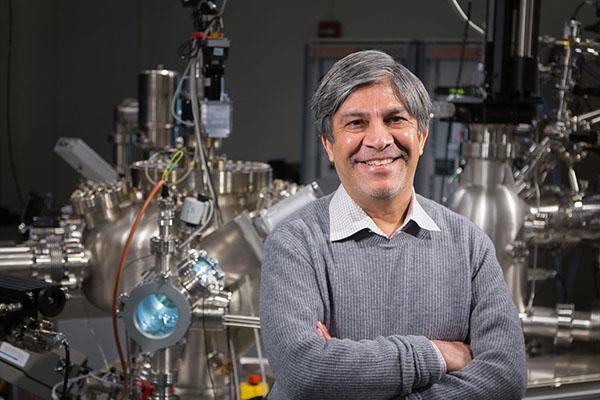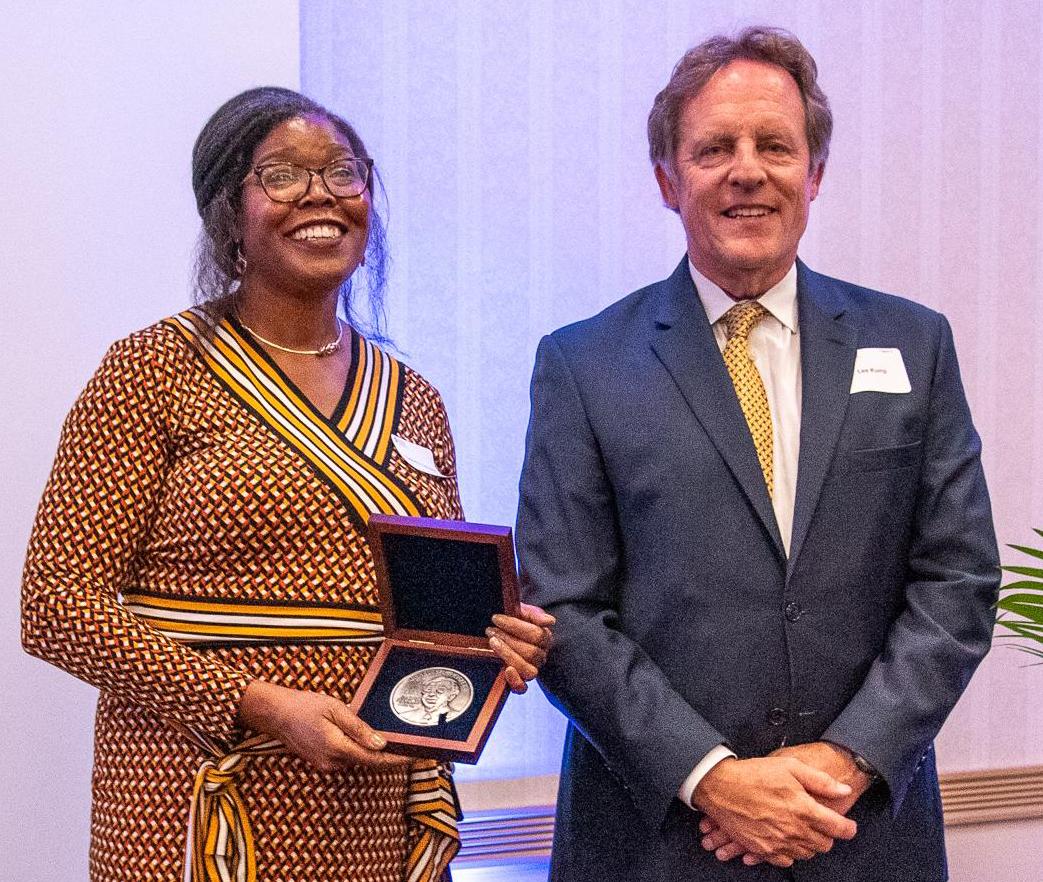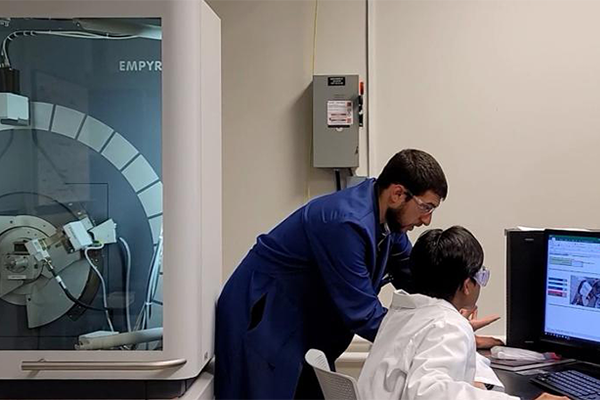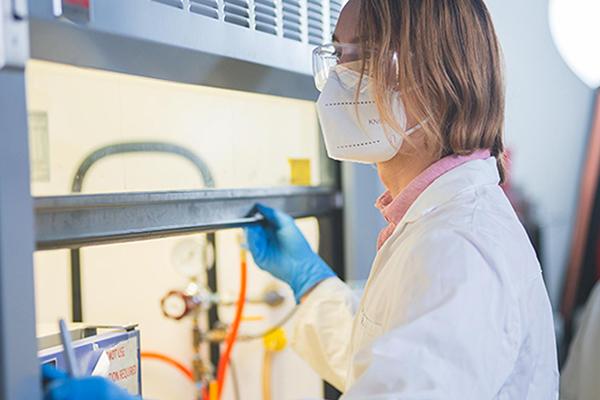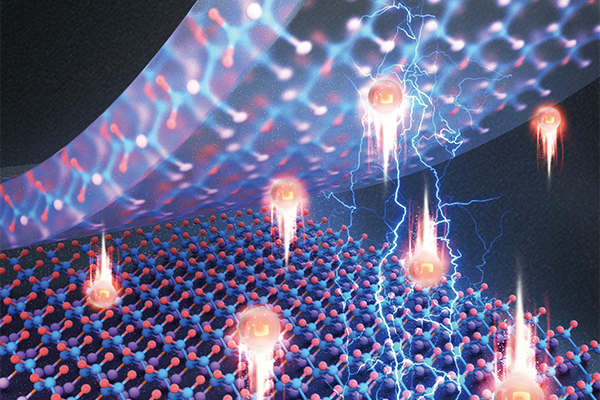Benjamin O’Donnell, a Penn State undergraduate student studying materials science and engineering in the College of Earth and Mineral Sciences, received the 2023 Ellwood Metallurgy Scholarship, which also included a paid summer internship with the company.
Nitin Samarth, professor of physics and of materials science and engineering at Penn State has been selected as the Verne M. Willaman Professor of Physics. The appointment is awarded by the Office of the President of the University, based on the recommendation of the dean of the Eberly College of Science, in recognition of Samarth’s research contributions, teaching and service to the Department of Physics and the Eberly College of Science.
A multi-institutional project led by a Penn State researcher is focused on developing an all-in-one semiconductor device that can both store data and perform computations. The project recently received $2 million in funding over three years as part of the new National Science Foundation Future of Semiconductors (FuSe) program, a $45.6 million investment to advance semiconductor technologies and manufacturing through 24 research and education projects across the United States.
Tabbetha Dobbins, professor, dean of graduate studies and former vice president for research at Rowan University, is the recipient of the 2023 College of Earth and Mineral Sciences (EMS) Charles L. Hosler Alumni Scholar Medal for her efforts to elevate scientists and students.
One of the more innovative energy-saving tools at Penn State was not implemented by a faculty member, employee, or graduate student. Instead, it was developed by undergraduate students who are part of an innovative and unique research fellowship offered by the Materials Research Institute (MRI).
There’s a barrier preventing the advent of truly elastic electronic systems, the kind needed for advanced human-machine interfaces, artificial skins, smart health care and more, but a Penn State-led research team may have found a way to stretch around it.
Fifteen Penn State research labs have earned My Green Lab certifications at one of the three highest levels available: gold, platinum or green. The certification is recognized by the United Nations as a key measure toward the goal of a zero-carbon future. The Penn State Sustainable Labs Program, launched in 2022, piloted the international certification program at the University, and will welcome 25 new research labs from across the commonwealth to participate in the coming academic year. Applications are due on Aug. 10.
Through events, education and actions, the Department of Materials Science and Engineering (MatSE) at Penn State is committed to creating an environment that promotes diversity in the field so that the next generation of experts tasked with creating and improving materials incorporates all perspectives.
Penn State has been named one of 21 founding member institutions of Micron Technology’s newly formed Northeast University Semiconductor Network. The network, established in partnership with the National Science Foundation, will focus on enhancing curriculum and developing new research and learning opportunities to prepare the next generation of the U.S. semiconductor industry’s workforce.
A new type of ferroelectric polymer that is exceptionally good at converting electrical energy into mechanical strain holds promise as a high-performance motion controller or “actuator” with great potential for applications in medical devices, advanced robotics, and precision positioning systems, according to a team of international researchers led by Penn State.



